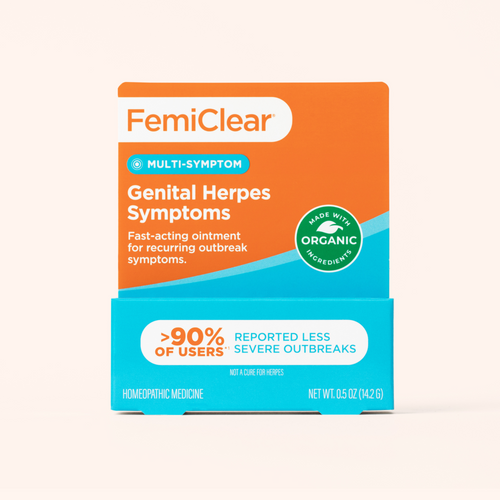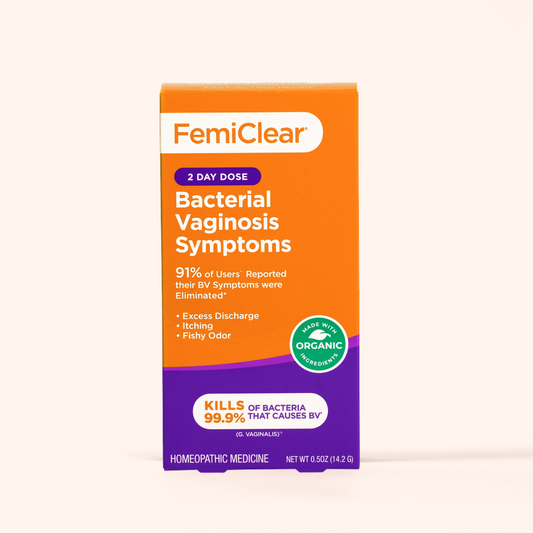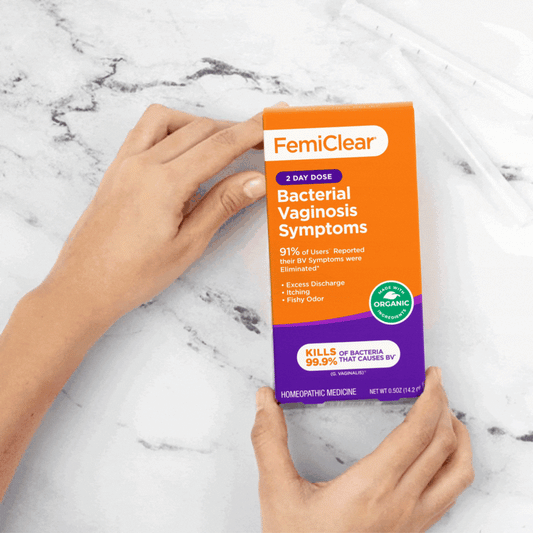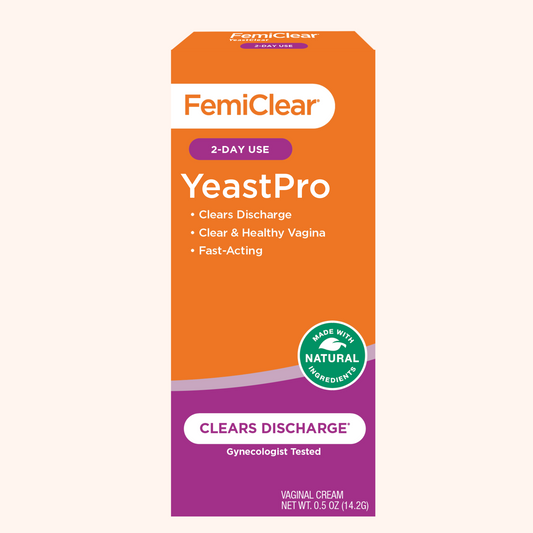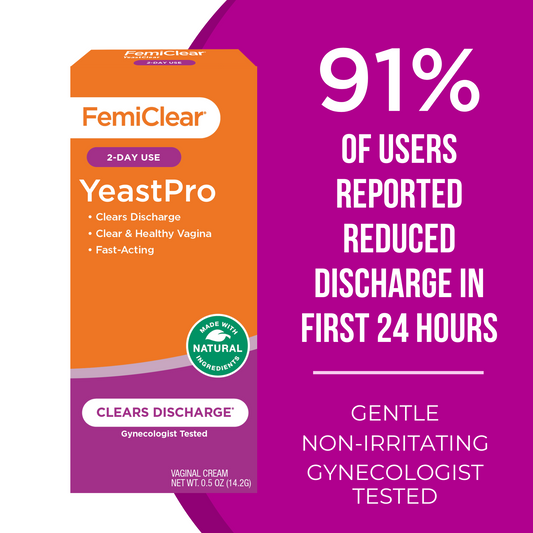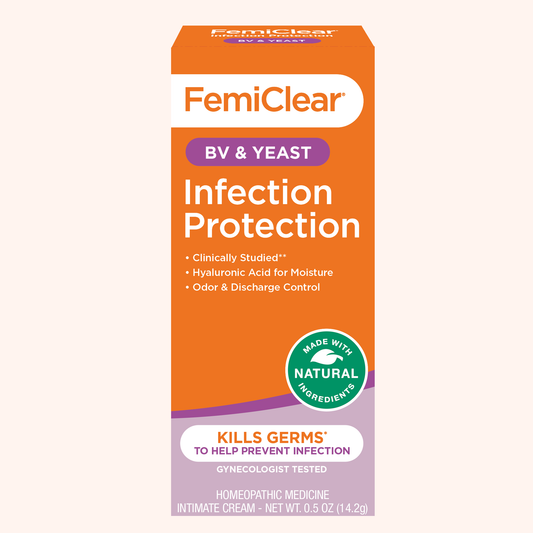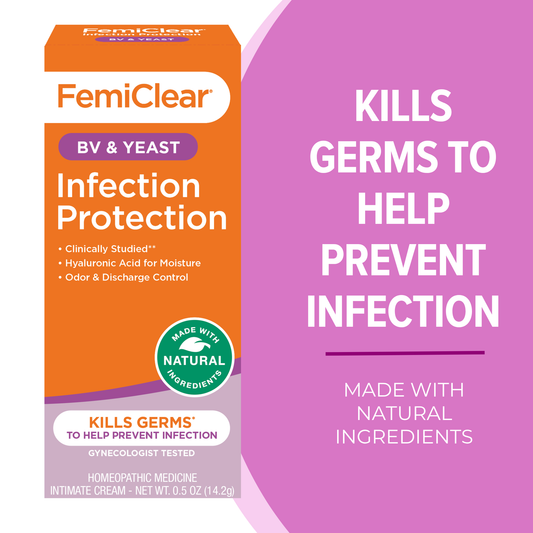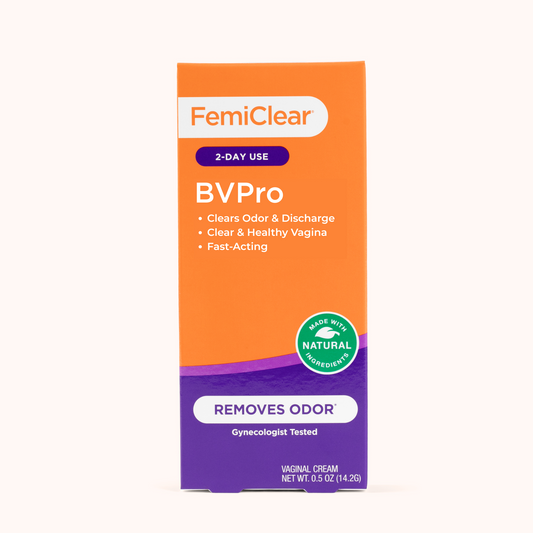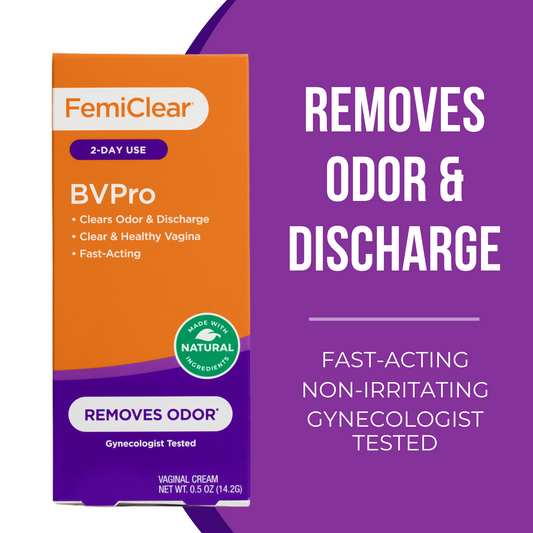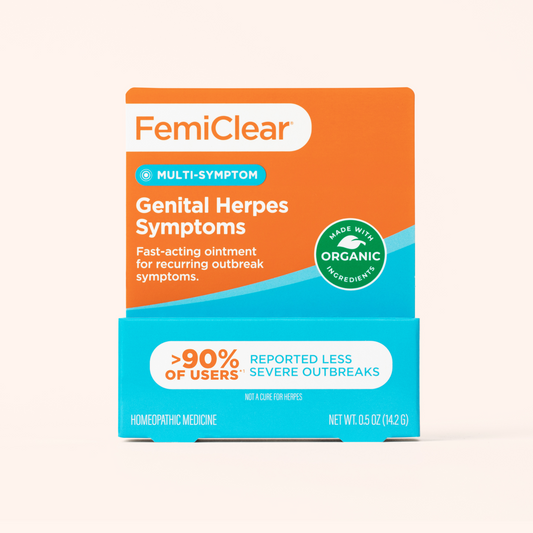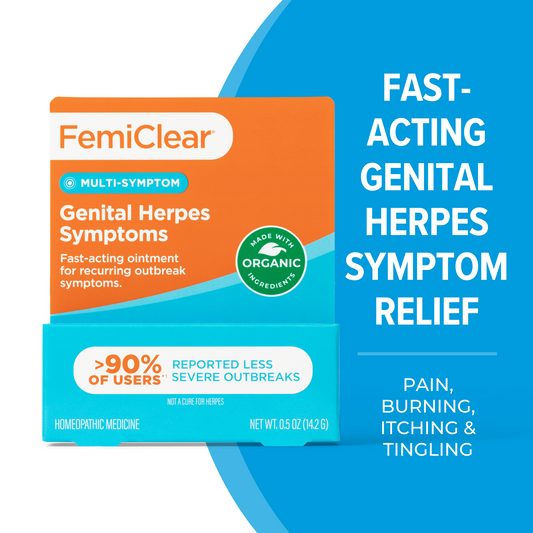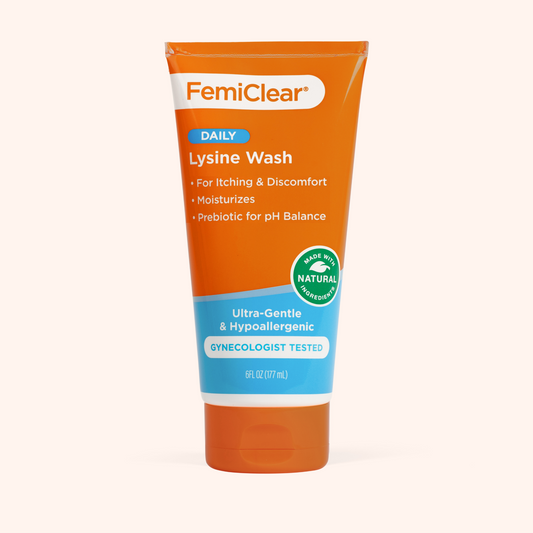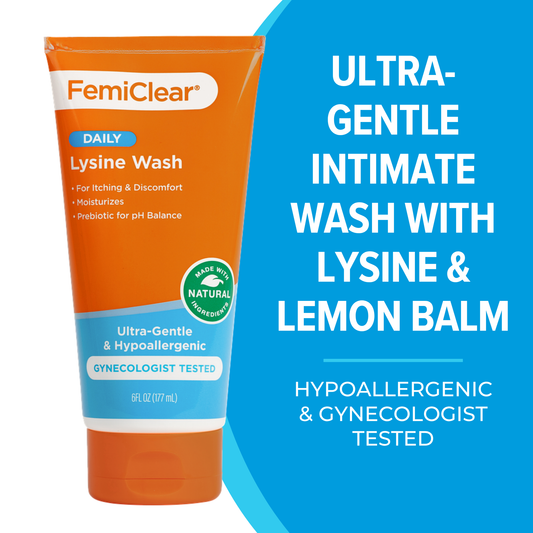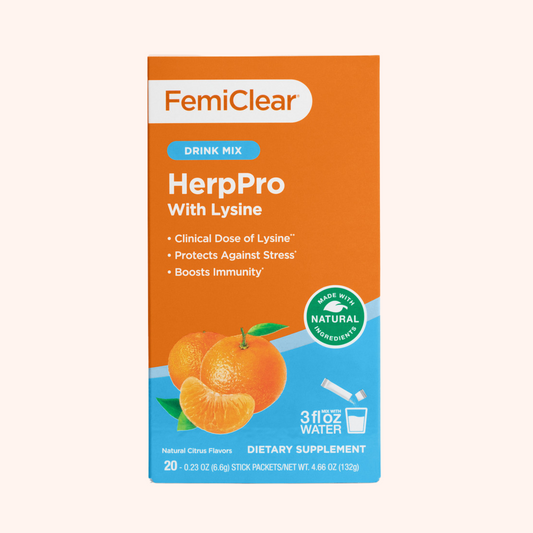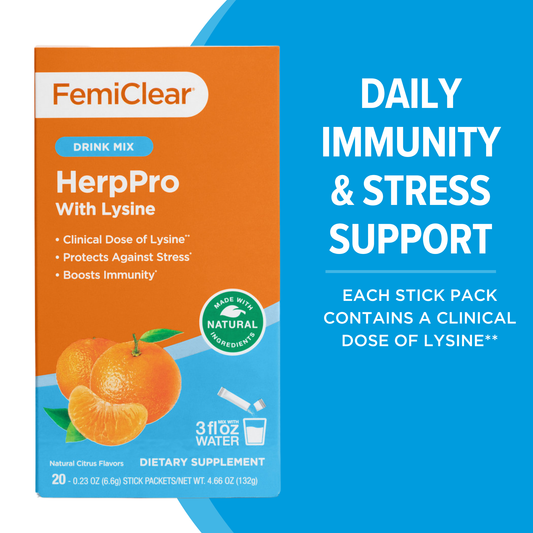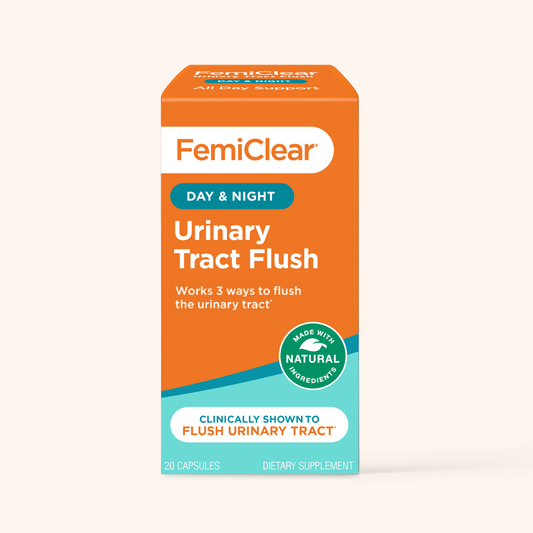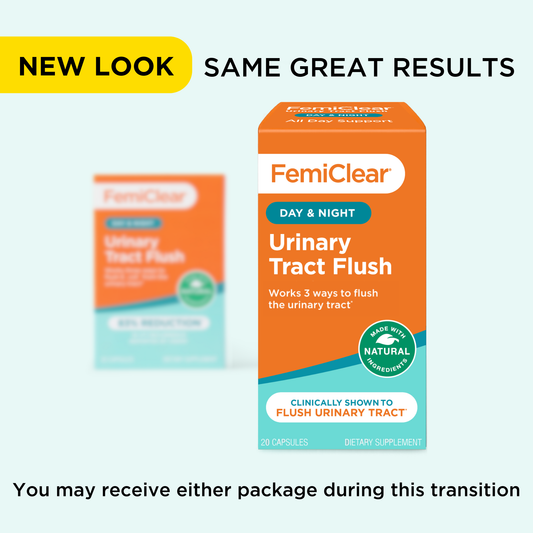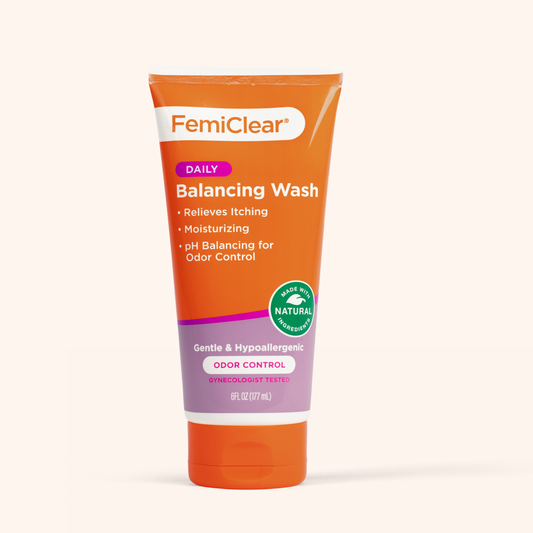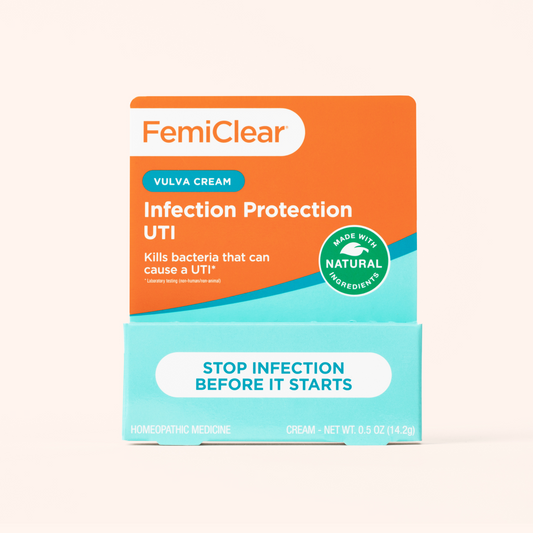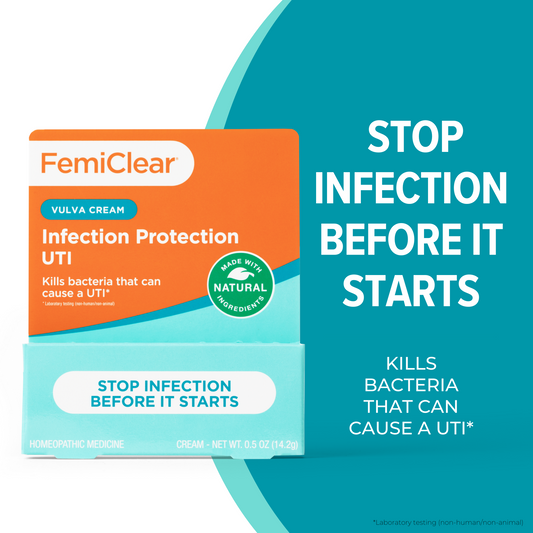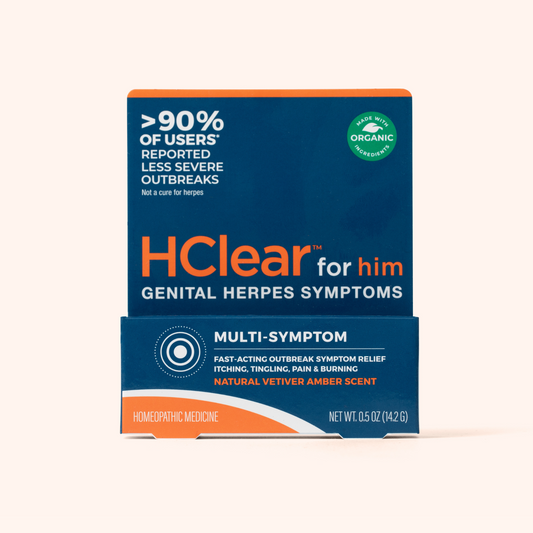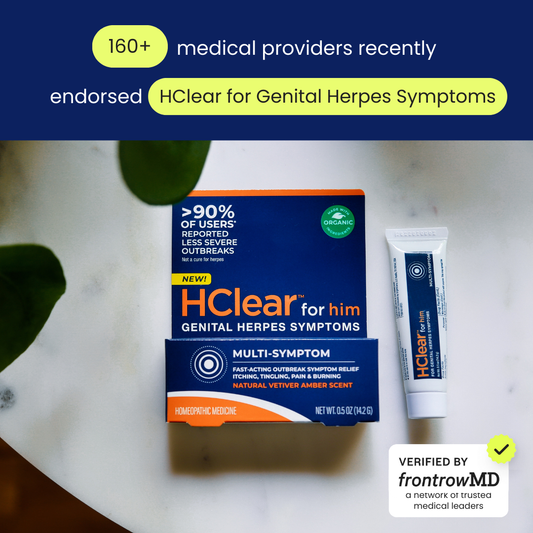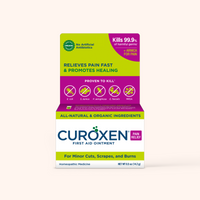Table of Contents
Navigating Genital Herpes While Pregnant: The Ultimate Guide
Written by Carrie Murphy May 05, 2023

If you’re someone with genital herpes—and you want to be a parent—you’ve likely wondered how your herpes status may affect your pregnancy and birth. Although there are increased risks and concerns for babies born to women with HSV-2, chances are extremely low (1 in 3200!) that your baby will get herpes. Take a deep breath and don’t stress—there are many ways to manage your genital herpes during both pregnancy and birth to ensure both you and your baby are healthy.
What Is Genital Herpes and How Is it Transmitted?
HSV-2 is a sexually-transmitted infection that causes genital herpes. It is spread through genital contact or contact with sores or fluids. It’s also very common—here in the US, about 1 in 6 people ages 14-49 have HSV-2. In fact, herpes is more common in women than men, with 1 in 5 women having herpes to 1 in 9 men.
Even if you’ve never had an outbreak or any signs of herpes, you may still have genital herpes. Herpes can live in the body for months or years without any outward signs. Many people don’t even know they have it.
People often find out they have herpes after they have been exposed by a partner or when a previous partner is diagnosed and discloses the infection. If you do not experience outbreaks or have any other symptoms, your medical provider can order a blood test that will show if you have herpes or not.
Signs and Symptoms of Genital Herpes While Pregnant
Diagnosis of herpes is similar whether someone is pregnant or not. Signs and symptoms include:
- Blisters on the genitals, including the anus and buttocks
- Scabs on the genitals
- Tingling and burning in the genital area
- Painful urination
- With a first outbreak, symptoms can include fever, flu-like symptoms, headaches, body aches, and enlarged lymph nodes
If you have any of these signs and symptoms, let your doctor or midwife know. Again, if you don’t have any symptoms, you can ask your medical provider to order a blood test which should reveal if you have herpes. This may be useful to do if you know you’ve had sex with someone who has HSV-2 or if you’ve had symptoms of an outbreak in the past.
About 22% of pregnant women in the US have herpes, according to the Journal of Infectious Diseases in Obstetrics and Gynecology. About 2% of women acquire herpes while pregnant. Up to 80% of babies who are diagnosed with neonatal herpes are born to women who do not know they have herpes.
Risks of Herpes During Pregnancy and Birth
Some people may find that they have increased outbreaks during pregnancy. Others may find that they have fewer outbreaks. Still, up to about 75% of pregnant women will experience at least one outbreak during pregnancy. The risk of herpes during pregnancy is pretty low in terms of the pregnant person—you would get the typical itching, burning, and discomfort from the herpes lesions and sores, but there is no indication that the virus will harm your body in any other way.
The much more serious and concerning risk of having herpes while pregnant is the risk of transmission to a baby. Neonatal herpes (when herpes is transmitted to a newborn baby) is extremely dangerous and can even be fatal. It usually develops within the first month of a baby’s life and requires hospitalization for treatment. The good news is that it’s fairly rare in the US, about 1 in 3200 babies.
Most often, herpes is transmitted to a newborn during vaginal birth when an outbreak is present.
The risk of transmitting herpes to a newborn is highest if someone gets herpes for the first time in pregnancy and/or has their first outbreak during pregnancy, especially during the third trimester. Research indicates that someone with a primary (first-time) herpes infection has a much greater chance (up to 50%) of transmitting herpes to a baby than someone who has already had recurrent herpes (3%). This is because the viral load is highest at the time of transmission or first outbreak—if you’ve had herpes since before you got pregnant, your risk of giving herpes to your baby is much lower.
Even if there is a lesion present at birth, research indicates the risk of the baby getting herpes is still only 2-5%. If you’ve had herpes before pregnancy and do not have any symptoms at the time of labor and birth, the risk is even lower, about 0.02-0.05%. It’s also important to know that up to 80% of babies who are diagnosed with neonatal herpes are born to women who did not know that they had herpes.
Although it’s quite rare (5% of the time), herpes can be transmitted in utero, too. That’s one important reason why it’s key to take antivirals during pregnancy, even if you don’t get outbreaks often.
As always, avoid sexual activity if you have a genital herpes outbreak. If your sexual partner has herpes and you don’t, always use condoms or avoid genital contact entirely.
Birthing with Herpes
Many people think that having genital herpes means an automatic Cesarean section, but that’s not true. It’s still totally possible to birth vagisnally if you have genital herpes. Vaginal birth has many benefits for mothers (like a shorter recovery, lower chance of infection, and significantly lower maternal morbidity and mortality) and babies (like bacterial boosts from the vaginal microbiome) alike.
From the American College of Obstetricians and Gynecologists, the standard of care for someone who is pregnant with herpes is to take daily prescription antiviral medication from 36 weeks pregnant (which is about 4 weeks before the estimated due date, which is at 40 weeks of pregnancy).
According to the CDC, this is usually 400 mg of acyclovir 3 times a day or 500 mg of valcyclovir 2 times a day. The idea is that taking antivirals daily will prevent an outbreak, and thus, vastly lessen the chances of transmitting herpes to your baby.
This medication regimen will apply whether you have a midwife or an OB, you’re birthing at a hospital or a birth center, or whatever other factors may affect your plans for the later weeks of pregnancy and for birthing your baby. It is also applicable even if you are having a planned Cesarean birth.
If you are someone at risk of or with a history of preterm birth, you can ask your doctor or midwife to prescribe daily antivirals for you earlier in pregnancy. This may be a strategy to preserve the chances for a vaginal birth if the baby is born or labor starts before 36 weeks gestation.
If there is an active herpes outbreak at the time of labor, a Cesarean birth will be recommended by your provider. This is to lessen the chance of your baby coming into contact with a herpes lesion in or on your cervix, vagina, vulva, or anus. This does not mean that you will have to have a Cesarean birth with every subsequent pregnancy—a surgical birth is only indicated when there’s an active outbreak at the time of labor.
Strategies to Lessen Herpes Outbreaks While Pregnant
While the only tried-and-true way to avoid or lessen herpes outbreaks while pregnant (and thus, avoid passing herpes to your baby) is to use prescription antiviral medication, there are still a few things you can do to support your overall body and immune system.
Above all, make sure your provider knows that you have herpes. If you haven’t been diagnosed with it, you can ask for a serum antibodies blood test to see if you have herpes antibodies in your blood. Knowledge is power! Ensure that you get a prescription for an antiviral medication.
Although it’s easier said than done, especially when you’re growing a human, lowering your stress levels can help you lower the chance of having herpes outbreaks. A 2022 paper in the journal Viruses suggests that higher levels of stress hormones can activate HSV-1 and HSV-2 in the body. Lower stress levels are also overall beneficial for both you and your baby during pregnancy. So, whatever you can do to care for yourself and lower your stress levels, from exercise like yoga and walking to mindfulness practices like meditation, do it! Rest and relaxation can also help. Caring for yourself is key in pregnancy—and it’s even more key when you have genital herpes.
If you do get an outbreak, support your body to help the outbreak heal as quickly as possible. Taking supplements like lysine or using products that contain it (like our Immunity and Stress Support Drink Mix!) can work to help your body fight the virus. Lysine is an essential amino acid that seems to prevent the replication of the herpes virus, especially at dosages of more than 3000 mg a day. Another FemiClear product that can support you daily or when an outbreak is present is our Feminine Wash (which contains both lysine and lemon balm, another natural compound that can help the body fight herpes). FemiClear’s Multi Symptom Relief for Genital Herpes,an effective herpes genital cream, can also soothe symptoms when an outbreak is present.
Chances are, you’ll have a healthy pregnancy and birth as a person with genital herpes. Educate yourself, be open with your providers, cake for yourself, and be sure to take your antivirals. We’re wishing you a happy healthy pregnancy, birth, and postpartum!
Written by Carrie Murphy May 05, 2023

Multi Symptom Relief for Genital Herpes Symptoms
Kills 99.9% of the herpes simplex I & II viruses*
Learn More